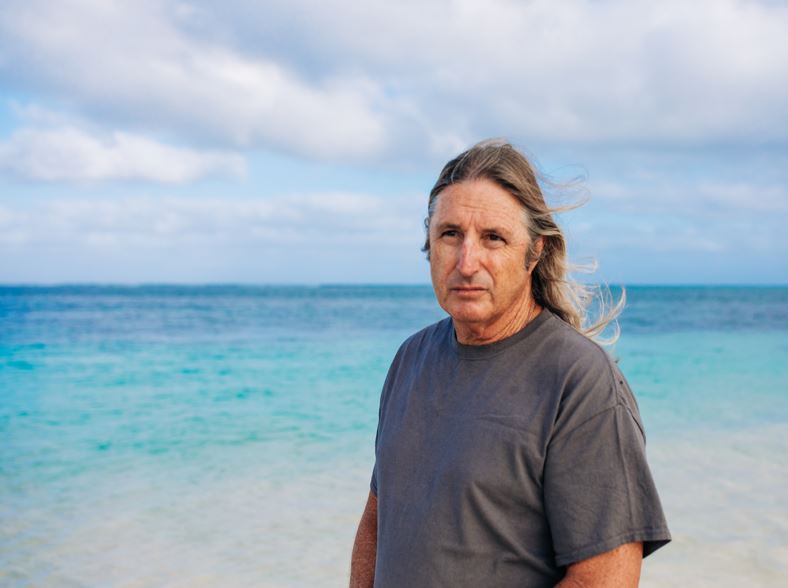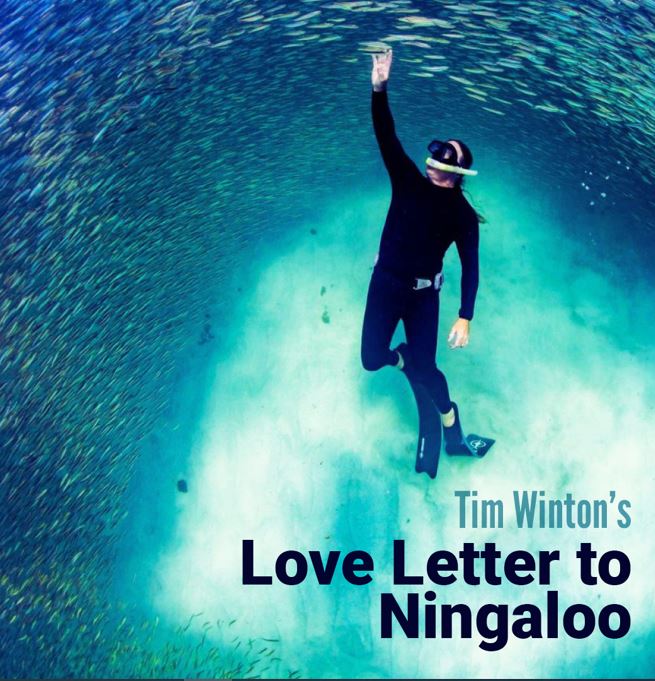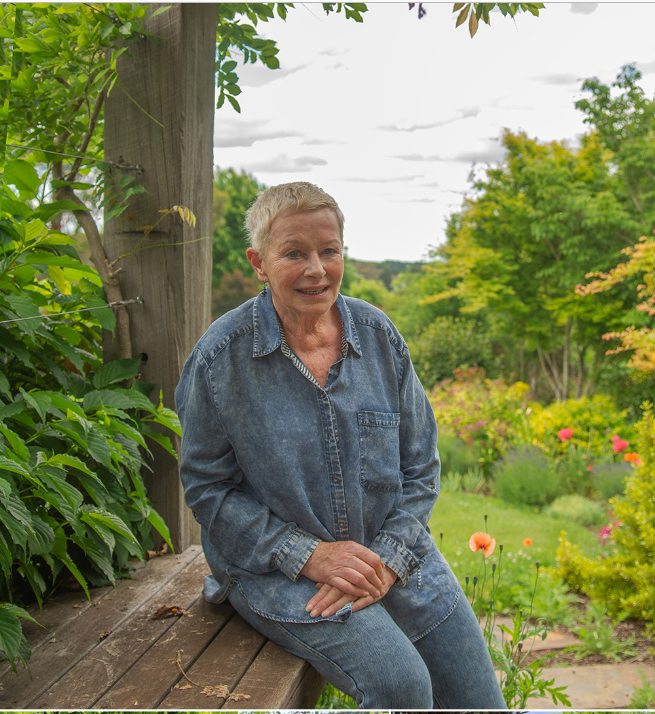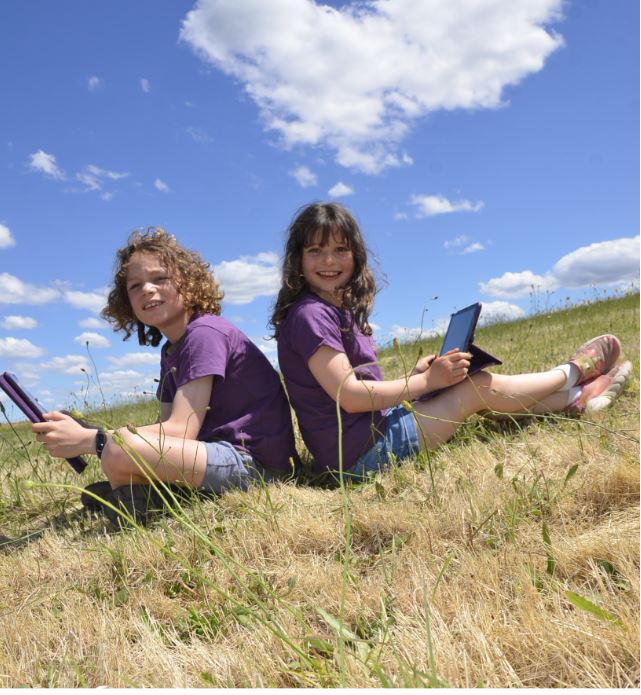April 28th, 2023Living legend Tim Winton’s love letter to a reef

BESTSELLING author Tim Winton is coming to the region with a message of hope: good
information and organisation can stop destruction of our world.
He’s spent decades striving to save one of the last intact wild places left on Earth, Ningaloo Reef on Western Australia’s remote coast, beside the Indian Ocean. Once given over to the fishing of turtles and whales and set to become a quarry and an oilfield, it now has World Heritage listing.
Winton will be in Castlemaine and Kyneton next month talking ahead of what is said to be his visually stunning three-part TV documentary on the reef.
Author of 29 books which have sold in the millions, and winner of countless awards, the 62-year-old father of three and grandfather of two is seen stopping a whale shark, getting hit by a critically endangered ray, holding a dugong against his heart, saving baby turtles and encountering sea snakes and
tiger sharks.
All this began about 23 years ago when he gave the campaign $28,000 from the Miles
Franklin Award for his book Dirt Music. Now a National Trust Living Treasure, Winton
largely set aside his writing to throw himself into the fight for Ningaloo, an indigenous
word for promontory.
Here, as he says, where the desert has its feet in the sea, survival depends on a clash of ideas. What has happened is a beacon of hope on the edge of an abyss. It’s a place, Winton says, that could teach us how to get things right if we just pause a moment and listen.
Not that it was a complete triumph, however. “We tried to get all three eco-systems (heritage) listed as an entity. Exmouth Gulf was to be included but developers white-anted it.”
One irony is that just recently thousands of people from all over the world came
to Exmouth to see another natural phenomenon, an eclipse of the sun.
So is he ever dispirited? “Every day. I’m enraged daily, and nightly, by the poverty of public discussion, but slipping into despair is giving victory to the dark side. We have to cling to life, we have to cling to hope.
“People are tired of being told something is impossible when it is possible. Every lake, every forest that is saved is because people acted.”
The documentary was made, he tells The Local, “in my other spare time” and done out of a sense of duty. He didn’t want to be on television but without him there was no money for the project, while cracking the old joke, “I’ve got a good face for radio”.
Cultural and ecological values are examined in the series which, Winton says, is not as outstanding as, say, the BBC might make, but nevertheless is blue chip natural history.
Making it meant working in “a bubble”, a massive, six-days-a-week undertaking
involving animals and children, where the day’s script changed all the time.
Having always worked alone, he found it strange at the age of 60 to be with a
team working for the long haul. “The writing is different. It’s a recipe, a wish-list for the animals to show up at a certain time…”
Filmed over 57 weeks during Covid lock-downs, and in collaboration with traditional owners and cultural advisers, the series involves almost 100 experts in fields such as archaeology, geoscience, biology, marine science and eco-tourism.
Now the documentary, called Ningaloo Nyinggulu, is to be shown on the ABC and in more than 100 countries.
This is not a campaign documentary, Winton adds. “I just hope that when people
see one of the last places of global significance they will be inspired.”
At the end of our 20-minute phone talk, Winton discloses that, in spite of the
demands of the documentary, he has that day finished another novel. “But I don’t
know if anyone will want to publish it. Shit, what else would I do?”
Words: Kevin Childs | Main image: Vee@BlueMediaExmouth

The Local has six books by Tim Winton to give away to readers. For the chance to win
email donna@tlnews.com.au with your name, town, contact number and which title
you would like to win from Eyrie, Shallows, The Shepherds Hut, The Riders, Three
Plays and An Open Swimmer. Entries close on Friday, May 5.










